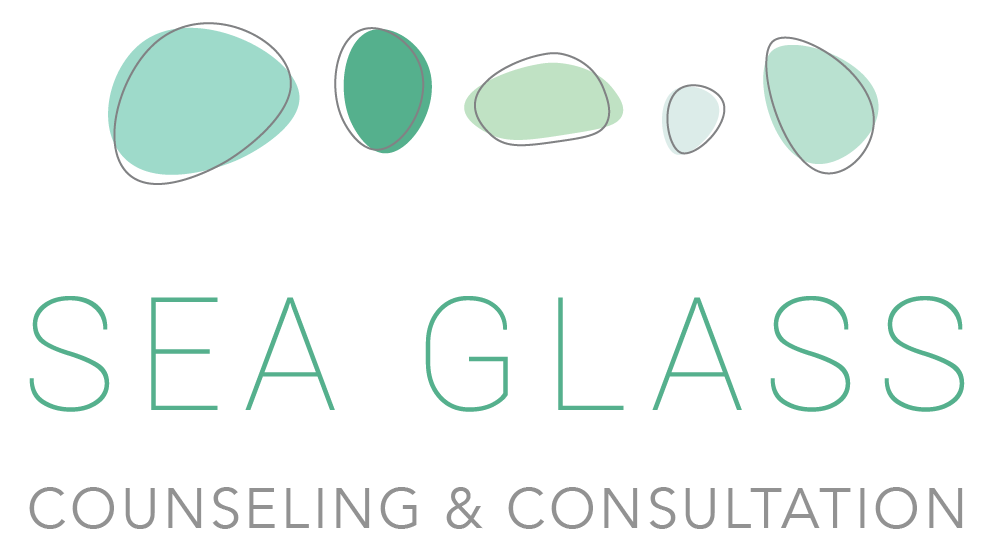Virtual OCD Treatment in Ohio
Do you feel like you can't escape your own mind?
Do you find yourself trapped in endless cycles of intrusive thoughts, unable to stop worrying about things that seem out of your control? Have you spend years in therapy with another counselor for “anxiety therapy” and haven’t felt like anything worked? Are you constantly checking, creating to-do lists, arranging, avoiding, or redoing tasks in an attempt to ease your anxiety, only to find that nothing ever feels "right"? These are just a few of the struggles that come with Obsessive-Compulsive Disorder (OCD), a mental health condition that often leads people to feel overwhelmed, frustrated, and alone. Whether you’re a busy medical professional, a dedicated stay-at-home mom, or a high-performing lawyer, OCD can make everyday life feel like an exhausting battle with your own mind.
OCD is characterized by unwanted, persistent thoughts (obsessions) and repetitive behaviors or mental acts (compulsions) that an individual feels driven to perform. To meet criteria for OCD, individuals need to have either obsessions or compulsions, OR both. Obsessions and compulsions can significantly interfere with daily life and cause distress.
Even when you understand that your obsessions and compulsions aren’t rational, they can feel impossible to control. You may feel like you’re stuck in an endless loop, constantly fighting against your own thoughts and behaviors. You may try to convince yourself that your thoughts don’t make sense, but deep down a part of you worries that they’re true. It's common to feel isolated, believing that no one else truly understands the constant stress and anxiety you're experiencing, especially when you’ve been to therapy for anxiety in the past, and it didn’t really seem to do anything.
OCD is more common than you think
Think you may be struggling with OCD? You’re not alone! Obsessive-Compulsive Disorder is much more common than people realize. The International OCD Foundation reports that 1 in 40 adults in the U.S. experience OCD, with many others struggling in silence, not knowing where to turn for help. For many, OCD starts in childhood or adolescence, but it can develop at any stage in life. Understanding that OCD is not a rare or unusual disorder can help reduce some of the isolation you may feel. You’re not the only one who’s experiencing these frustrating symptoms, and there is help available.
It’s important to recognize that OCD is not a personal weakness or something you can simply "snap out of." Brain imaging shows that the brain gets stuck in a loop where the brain responds too much to possibility and too little to stop signals or reality-testing. (EX: Did I unplug my hair straightener before leaving the house? And then being unable to keep from turning around, driving all the way back home to check, and missing the other appointment you were on the way to.) With OCD, brains do not receive the full reward cycle for completing a soothing behavior, which allows the cycle to continue.
Research suggests that OCD is caused by a combination of genetic and environmental factors. Stress and trauma can trigger the onset of OCD symptoms in people who are genetically predisposed or who have a subclinical presentation of symptoms. A 2008 study found that 82% of participants with OCD reported also having a trauma history. A 2023 study found that OCD can sometimes develop as an adaptation to trauma to help the client avoid traumatic material.
OCD symptoms include a combination of unwanted thoughts (obsessions) and/or repetitive behaviors (compulsions) designed to reduce perceived anxiety. A lot of times these thoughts are often scary, unacceptable, or shame-inducing. Having these thoughts does not mean you are a bad person, it just means you have OCD. Therapy is one of the most effective ways to address symptoms of OCD, and with the right support, you can learn to manage them. Many people with OCD have successfully overcome or minimized their symptoms with the help of skilled therapies like EMDR.
If past anxiety therapy hasn’t worked, it may be OCD
It takes an average of 14-17 years to receive an accurate diagnosis of Obsessive Compulsive Disorder. One of the most difficult challenges of OCD is the sneaky way symptoms can sometimes show up. It doesn’t always look like the stereotypical things you might think of - germs, locking doors, Sometimes OCD symptoms presents only as intrusive thoughts (an overlapping symptom of anxiety disorders and PTSD). Sometimes it’s perfectionism. Sometimes compulsions are mental and no one ever sees them. Sometimes it’s health anxiety. Fear of blasphemy and other religious obsessions.
OCD is complex and difficult to treat, and it’s important to find a therapist skilled at differentiating between OCD, Generalized Anxiety, PTSD, and other mental health concerns. Working with an unskilled therapist can unintentionally reinforce compulsions, strengthen feelings of shame, and keep you stuck and suffering in silence – worrying that you’re the problem because “therapy isn’t working.” An accurate diagnosis from the get-go allows us to provide appropriate treatment. Sea Glass therapists are experts at diagnosing Obsessive Compulsive Disorder and distinguishing it from related diagnoses and symptom presentation.
EMDR can help you overcome OCD
The gold standard of OCD treatment is a combination of medication + therapy, specifically Cognitive Behavioral Therapy (CBT) or Exposure and Response Prevention (ERP). About 70% of people will benefit from this combination. However, not everyone responds well to SSRIs, it can be re-traumatizing to face fears via ERP, and OCD often comes with its own unique set of shame and defense mechanisms that often complicate treatment, especially if you’re not working with a competent therapist.
In more recent years, EMDR (Eye Movement Desensitization & Reprocessing) Therapy has shown to be a promising treatment method for OCD. A 2019 study found that EMDR performed better than citalopram and was at least as effective as ERP. Several additional studies and case studies show EMDR as effective for reducing OCD symptoms. Treating OCD with EMDR is a highly specialized approach, and Sea Glass is proud to be home to true experts in this area.
If you've tried other forms of OCD therapy without success, EMDR can offer a refreshing and effective way forward. EMDR for OCD focuses on helping you build the ability to become an “detached observer” of your obsessions and increase your ability to tolerate the discomfort of intrusive thoughts without launching into a compulsive cycle.
All people have intrusive thoughts. When people don’t have OCD, their brains have the ability to let intrusive thoughts go, without attaching meaning to them (interpreting them as true, or inaccurately assessing the risk as catastrophic). In OCD, the brain cannot do this. Intrusive thoughts get interpreted as true, possible, or catastrophic. EMDR helps your brain reorganize how you relate to the distressing thoughts and fears that fuel your OCD.
Through targeted sessions, EMDR helps increase your ability to tolerate the emotional distress that comes along with your obsessions, making it easier to stop the OCD spiral before it even starts. Together we’ll work to create an adaptive coping statement for each obsession or compulsion and use bilateral stimulation to help your brain reorganize how you relate to the distressing thoughts or fears fueling your OCD cycle. It will be crucial for you to practice this in between sessions to reinforce the work we’ve done. Over time, this can lead to a significant reduction in both the frequency and intensity of your obsessions and compulsions.
With our expertise in EMDR for OCD and years of experience helping clients with OCD, we can guide you toward lasting relief and help you regain a more peaceful, balanced existence.
Don’t let these common fears hold you back from trying EMDR for OCD
"I’m afraid therapy won’t work for me." It’s completely understandable to have doubts. Many people with OCD have tried various methods in the past and haven’t seen the results they hoped for. We’ll work together to create a personalized approach that meets your needs and helps you make steady progress with EMDR and other resources.
"What if I’m just making my symptoms worse by talking about them?" This is a common concern for those with OCD, but it’s important to know that talking through symptoms does not inherently increase them. We’ll work slowly and intentionally to help you increase insight to your symptoms and learn to use adaptive coping statements to manage distress.
"I’m afraid I’ll never feel 'normal' again." It’s natural to feel worried that OCD will always control your life. You can learn to tolerate the discomfort of obsessions and refrain from engaging in compulsions. EMDR has helped many individuals with OCD reduce symptoms significantly, improve their quality of life, and experience relief from their intrusive thoughts. Recovery is possible, and you don’t have to do it alone. We’d love to support you.
There is hope for healing from OCD
Most therapists aren’t adequately trained to distinguish between trauma, anxiety, and OCD. The good news is that we’re not most therapists. This is an area we are experts in. We’ve learned directly from the pros who pioneered and studied EMDR protocols for OCD and have had the privilege of helping many clients just like you overcome the distress of intrusive thoughts and gain confidence to overcome the shame of OCD.
At Sea Glass, we’re passionate about providing a safe, nonjudgmental space where you can explore your emotions and begin your journey toward recovery from OCD. With our extensive training and experience in treating OCD with EMDR, we’re confident we can work together to help you experience the relief and peace you deserve.










